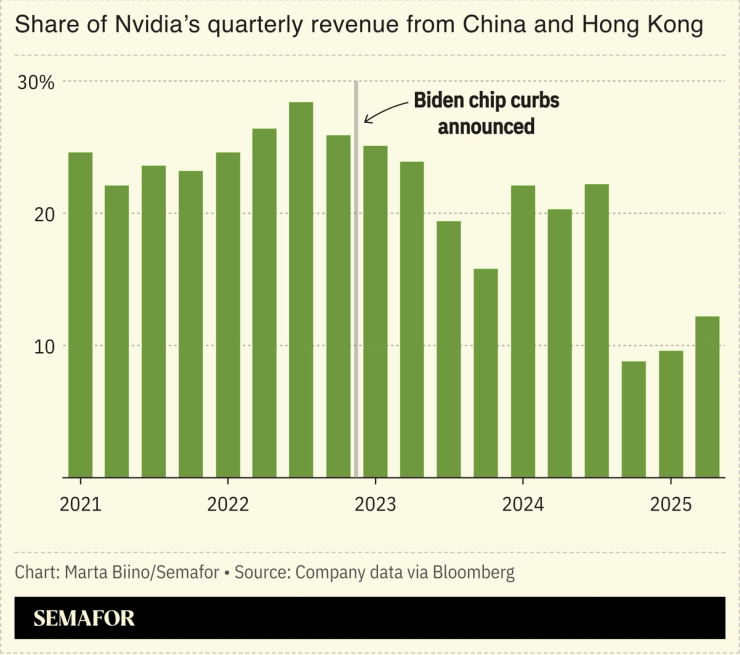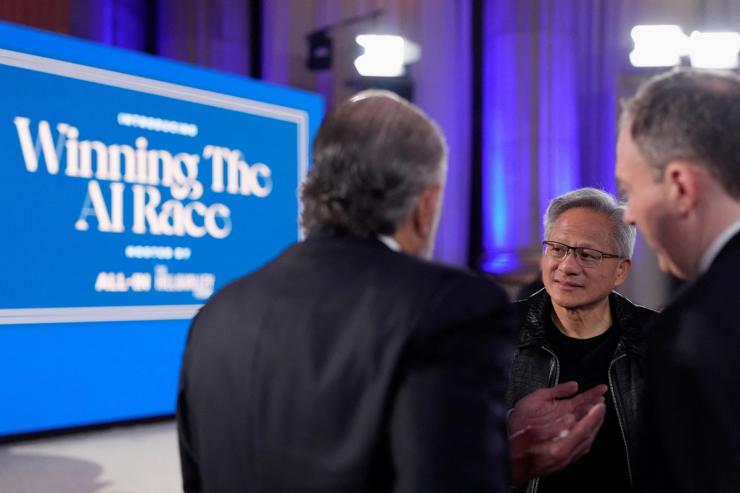The News
Beijing is showing that two can play the national security game. The Cyberspace Administration of China summoned Nvidia to address concerns that its H20 AI chips have backdoors, after a US proposal called for advanced semiconductors sold overseas to have tracking capabilities. The company recently received approval from the Trump administration to export those chips to China, reversing a Biden-era ban that cost Jensen Huang’s company billions in sales. Huang also just concluded a public visit to China in which he was greeted like a rock star, bucking other Big Tech CEOs who have avoided the spotlight when it comes to Beijing.

Know More
Separately, sabotaging supply chains is just one of several options Chinese scientists have come up with to thwart Elon Musk’s system of Starlink satellites, which are seen as a tool that could be used against China in a conflict, the Associated Press reported. But the civilian use of the technology could ultimately pose an even bigger threat to Beijing and other countries that tightly control access to the internet.
Today, Starlink satellites require fairly noticeable dishes pointing at the sky in order to achieve high bandwidth connections. But telecommunications companies are researching ways to achieve satellite connections without the use of GPS, which is necessary today. Within the next several years, it may be possible to get satellite internet on cell phones, even indoors.
In that world, the only way to cut off the internet may be to take out satellites — which would mean targeting Musk’s products, even though the entrepreneur has also had more cordial relations with Beijing than his peers, given Tesla’s production and sales in the country. But China’s national interest and competition with the US are superseding the personal relations it has with tech luminaries.


